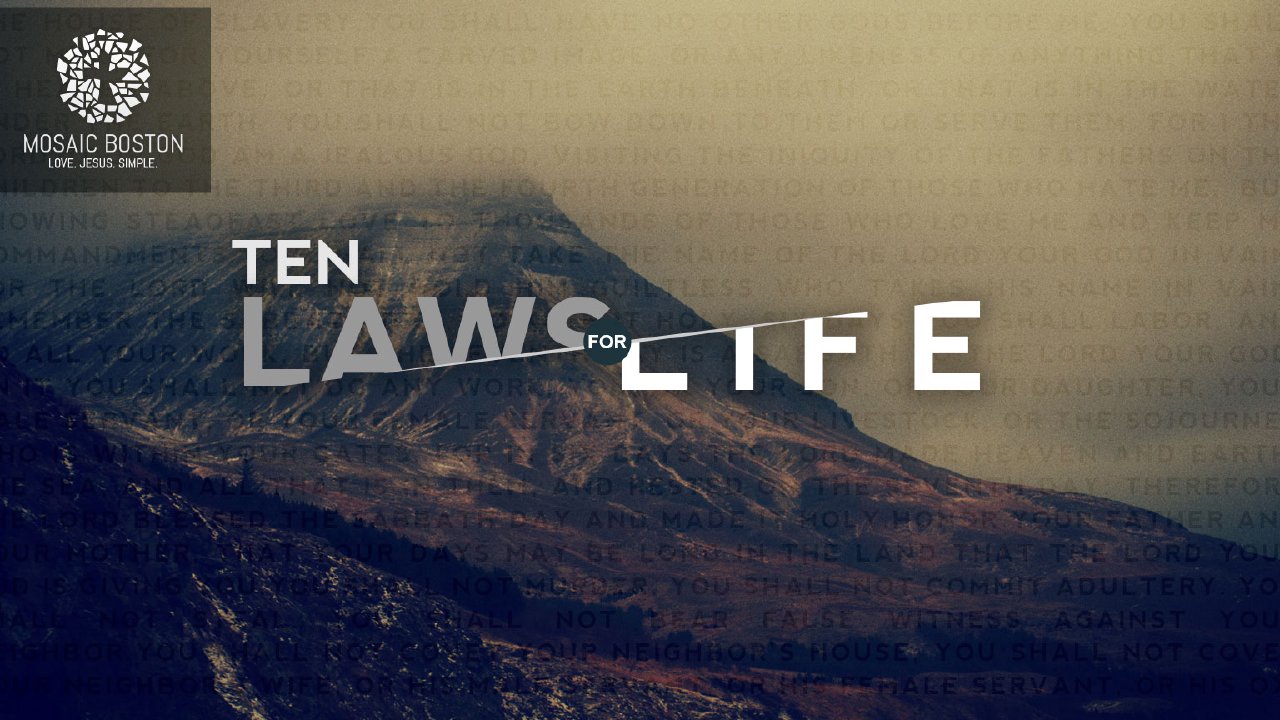“You shall not take the name of the Lord your God in vain.” Indeed, this commandment prohibits the flippant use of God’s name to mark surprise (‘oh my G_d!’) or shock or worse, but it’s so much more than that.
In order to begin to understand the depth of this commandment, we really need to understand the power of names, and names truly are powerful. Businesses have learned this a long time ago and globally recognized names like Apple, Google, Coca-Cola, Samsung, and McDonald’s invest billions each year to build, protect, and expand the reach of their brands. Companies spend seemingly disproportionate sums to hire “brand ambassadors” to promote and embody their corporate identity in appearance, demeanor, values, and ethics.
So what does the idea of a “brand ambassador” have to do with the third commandment? Everything! Join us tomorrow as we discuss the profound implications of this commandment on our lives as followers of the One who bears the name above all names, Jesus Christ.

Commandment III
October 18, 2015 • Exodus 20:1–21
Commandment II
October 11, 2015
What's the most discussed problem in the the entire Bible? Idolatry. Idolatry?! Really? Yes. Book after book, chapter after chapter, verse after verse warn us about the destructive nature of wrongful worship. To contemporary people the world "idolatry" conjures up pictures of primitive people bowing down before hand-made statues. Totally irrelevant to us, right? Don't be so quick to write this off. Every culture is dominated by its own set of idols. Ours are beauty, power, money, success. We may not physically kneel before the statue of Aphrodite, but how much time and energy do we sacrifice at the alter of beauty. We may not actually burn incense to Artemis, but how many relationships are sacrificed at the alter of money. We may not actually worship Ares, but we'll give all we are for fame, significance and security. The timeless truths of Scripture are always timely. The human heart has not evolved beyond being an "idol-factory." Be sure to join us tomorrow, as look in-depth at the Second Law for Life which warns us about the destructive nature of serving functional-gods and we'll look to the Gospel for healing and freedom.
Commandment IV
October 25, 2015 • Exodus 20:1–21
One of my absolute favorite Bible passages is when Jesus and his disciples get "caught" in a storm. As the ferocious winds tossed them around mercilessly, and water started inundating the small boat, the disciples are all freaking out. And what was Jesus doing? Taking a nap! They frantically wake him with pleas: "We're perishing" and "Don't you care?" Jesus, probably still a little groggy and somewhat annoyed that they disturbed his nice nap, gets up and calms the storm. The Gospel writers don't say what came next, other than the disciples being dumbstruck by what just happened, but I bet Jesus went straight back to sleep, because sometimes, the most spiritual thing we can do is take a nap. When we think about taking a day off, sometimes it feels like that. How in the world can I rest while my life is so tumultuous? I can't nap in the midst of a storm! If I rest, I'll sink. God hard-wired humans to both work and rest, in a healthy rhythm. If we stop doing either, we stop living full, flourishing lives. This is why God actually commands us to rest physically, mentally, emotionally, and spiritually, and this is meant to be a blessing, not a burden. In fact, regular rest is so important that God put it in the Ten Commandments, right up there with "Don't commit adultery" and "Don't murder." Thus, resting every seventh day isn't just a nice suggestion, but actually morally binding. Be sure to join us tomorrow as we learn about the theological and practical implications of Sabbath Rest.




